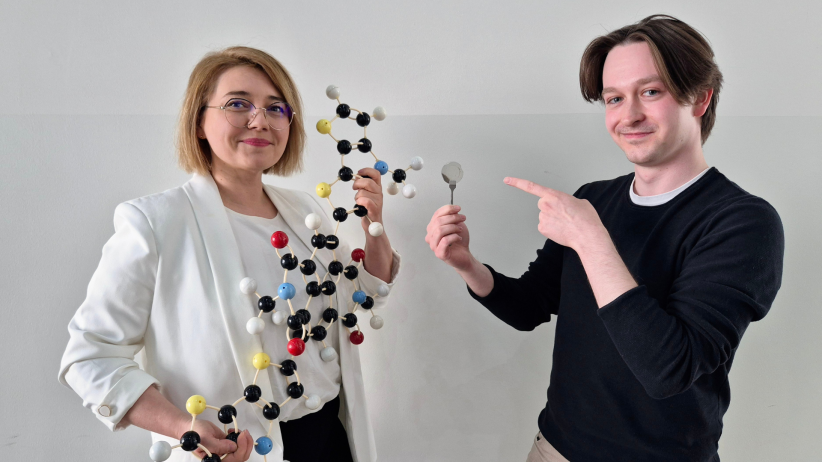Warsaw University of Technology Researchers Redefine Organic Electronics
A team of researchers from the Faculty of Chemistry at Warsaw University of Technology (WUT) has developed the first ambipolar Organic Electrochemical Transistor (OECT) fabricated via electropolymerisation, capable of operating in aqueous environments. Their unconventional approach enables the direct formation of thin, hydrophilic semiconducting layers within the transistor channel—a significant advancement in organic electronics.
The researchers achieved this milestone using electropolymerisation, a process that synthesizes polymers through electric current. This method allowed precise control over the material's electrochemical properties, resulting in a polymer with unique ambipolar conductivity—capable of conducting both electrons (n-type) and holes (p-type) depending on the applied voltage.
"By using the electropolymerisation strategy, we successfully addressed two major hurdles in organic electrochemical transistor fabrication. First, we minimized charge trapping caused by residual palladium atoms in conventional polymers previously used in such devices. Second, electropolymerisation enabled efficient utilisation of organic monomers during the formation of the electroactive layer, drastically reducing material waste in the production process," explains our PhD student, Roman Gańczarczyk, MSc.
This innovation opens new possibilities for neuroelectronics and neuromorphic computing, where biocompatible, water-stable transistors are crucial for interfacing with biological systems.
The results of the interdisciplinary research team – comprising Roman Gańczarczyk, MSc, Prof. Adam Proń, Magdalena Rudowska from the Faculty of Chemistry at WUT, as well as Renata Rybakiewicz-Sekita, PhD, (Cardinal Stefan Wyszyński University, Poland), Prof. Eric D. Głowacki (CEITEC, Brno), and Maciej Gryszel, PhD, (Linköping University, Sweden) – were published in the prestigious journal Small (Impact Factor: 13.0) under the title: "In situ electropolymerized ambipolar copolymers for vertical OECTs." Read the full publication here.


